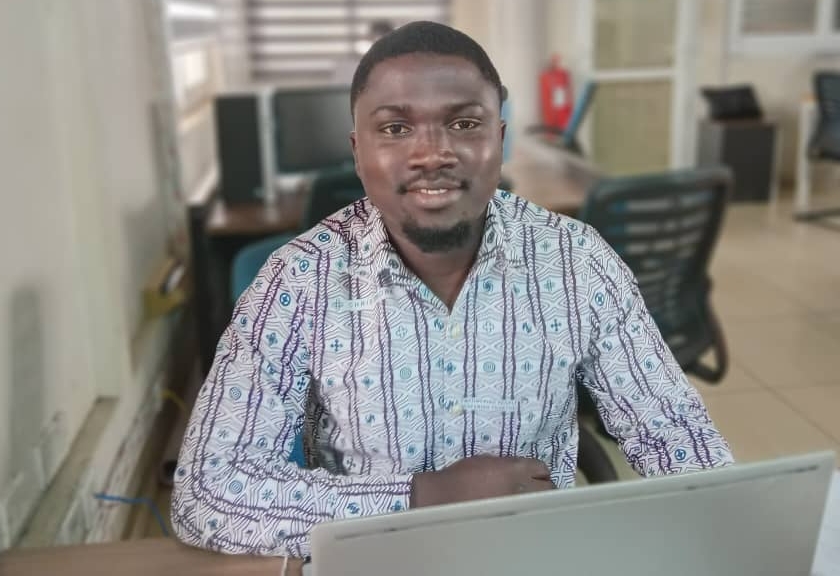A battle still far from won
The fight against illegal mining in Ghana, widely known as galamsey, continues, yet one would be hard-pressed to say the country is making any significant headway.
Each passing day reveals new complications and allegations, casting a shadow over whatever progress politicians claim to have made.
While political leaders assert that they are doing their utmost to combat this menace, journalists, often the bridge between the mining fields and the general public, paint a more sobering picture. This persistent discrepancy leaves me with little faith that the fight against galamsey has genuinely advanced.
A tale of two battles
Disturbingly, we have heard allegations of political figures being complicit in illegal mining activities. This, I fear, reflects a dual reality: on one side, the reports broadcasted by the media, and on the other, the unseen manoeuvrings of powerful individuals whose identities and actions remain obscured.
Over the years, the rhetoric surrounding galamsey has included numerous promises of engaging traditional authorities in affected communities. But I ask: is this engagement truly happening?
If it is, then what role are these traditional leaders playing? Are they actively involved, or merely passive observers, perhaps even compromised by those they should be standing against?
Allegedly, some may have been “settled” by illegal miners, including politicians. If you are a chief or queen who chooses silence and inaction in exchange for personal gain, then I say, with due respect, shame on you. Rethink your purpose.
The futility of a politician-only approach
If the political class merely pays lip service to involving traditional leaders, then we must all come to terms with a hard truth: leaving the galamsey fight solely in the hands of politicians will not work.
Why? Because the foremost ambition of any politician is to remain in power, and to do that, one must appease the voter.
And who are many of these voters? The very individuals operating in the forests, rivers, and hills, digging and dredging illegally, and their families, who benefit from their activities.
Would you, as a politician, clamp down on thousands of galamsey operatives, knowing they and their beneficiaries have the power to unseat you at the polls? Let us not be naive.
A flash of progress amidst the gloom
Recently, the military and the Forestry Commission carried out a significant raid on an illegal mining community. The visuals that emerged were both encouraging and symbolic.
Kudos to those behind this operation. It shows that when there is resolve, action can follow.
But let me return to the heart of this discussion—traditional leaders.
Traditional Authorities: the sleeping giants
It is my strong conviction that the bulk of the responsibility and resources for this fight should be placed in the hands of traditional rulers.
Let’s give 70% of the logistical, financial, and operational resources dedicated to combatting galamsey to the chiefs, queens, and their councils. They can do it. They have the authority and the respect of their people.
Let me paint a picture.
Growing up in my village, Awudome-Anyirawase in the Volta Region, I witnessed firsthand the influence of our paramount chief, Togbe Addai Kwasi XI of blessed memory.
He declared that no child should be seen outside after 8 p.m., and the community obeyed. During dry seasons, he warned against drawing water after 10 a.m. at the only lake serving thousands of residents at then, so the water levels could stabilise. Again, we complied.
When the forests were at risk, he forbade tree-felling, and not a soul dared to disobey.
The power of cultural authority
Traditional leaders still hold great sway in modern Ghana. In the Ashanti, Western, Eastern, and Central Regions, hotspots of illegal mining, communities listen to their chiefs.
If Otumfuo Osei Tutu II issues a ban on noise-making during the Adae Festival or for a royal funeral, the directive is observed to the letter.
In contrast, public trust in politicians has waned significantly. Political promises often fall flat, and suspicion clouds the intentions of many in office.
But traditional leaders? Their authority still commands reverence. Disobedience to a chief or elder remains a rarity.
Let us rethink the strategy
Therefore, I advocate a decisive shift in strategy. Let us allocate 70% of the resources in this battle to traditional leaders.
They know how to decentralise these assets effectively, engaging sub-chiefs, elders, and youth leaders in the cause. The remaining 30% can be left in the hands of the state and its political machinery.
Only through this partnership, rooted in tradition, community influence, and local wisdom, can we ever hope to dismantle the galamsey networks and restore dignity to our land.
In my next piece, I will break down how this 70% allocation can be structured and monitored, ensuring transparency and accountability, while outlining the limited but essential role politicians should play.
So, what is the fight against galamsey without traditional leaders?, I would say a battle far from won.
The author, Albert Kuzor, is a journalist with the Multimedia Group, Myjoyonline.com
DISCLAIMER: The Views, Comments, Opinions, Contributions and Statements made by Readers and Contributors on this platform do not necessarily represent the views or policy of Multimedia Group Limited.
DISCLAIMER: The Views, Comments, Opinions, Contributions and Statements made by Readers and Contributors on this platform do not necessarily represent the views or policy of Multimedia Group Limited.


